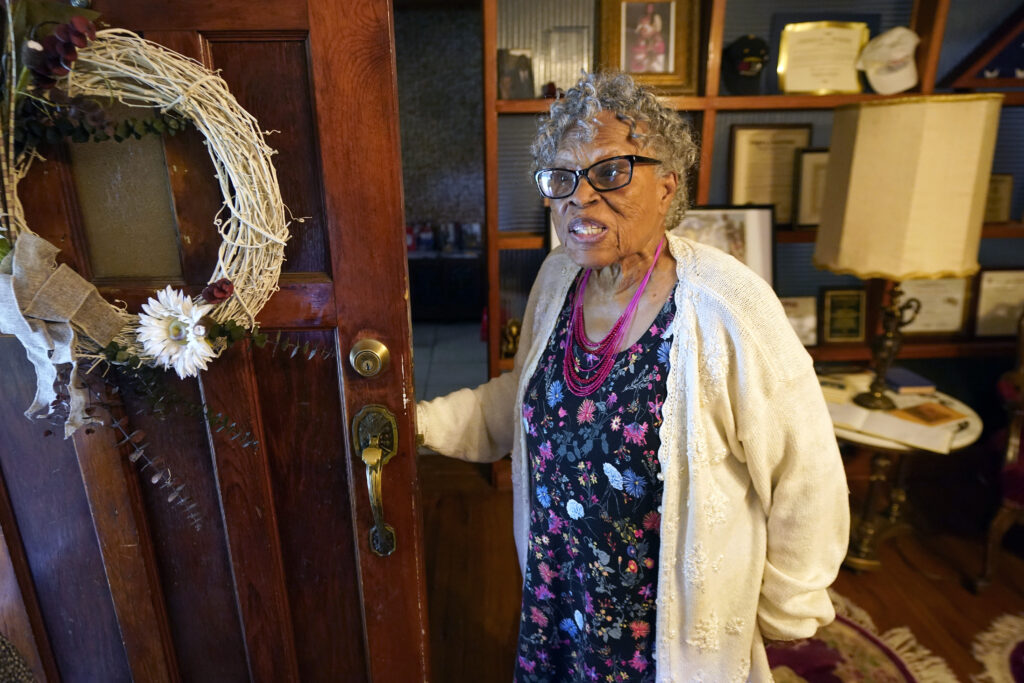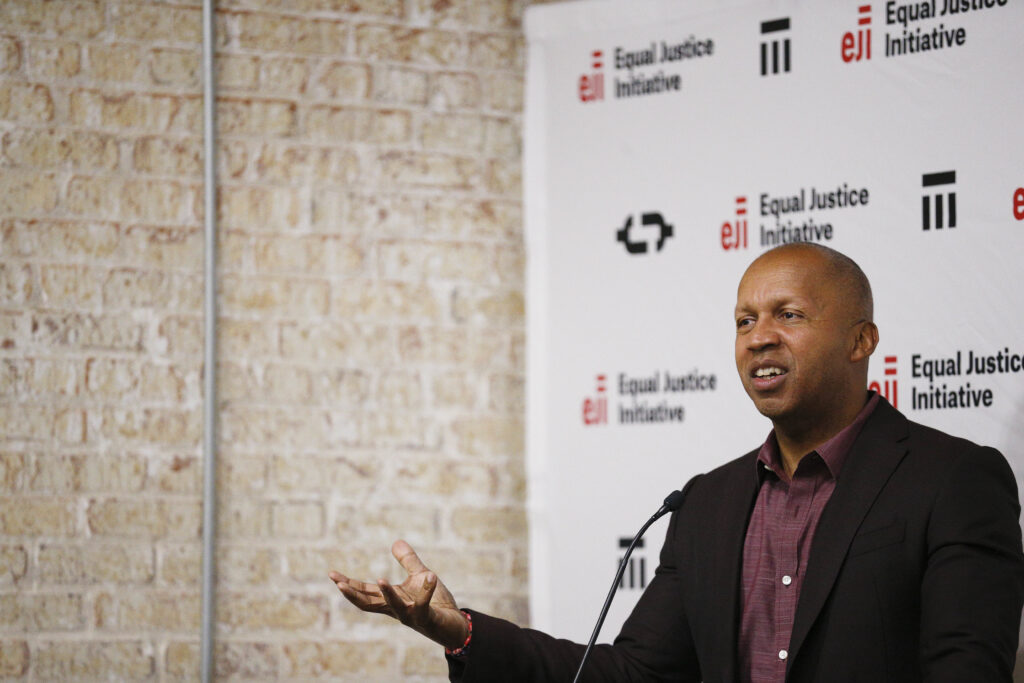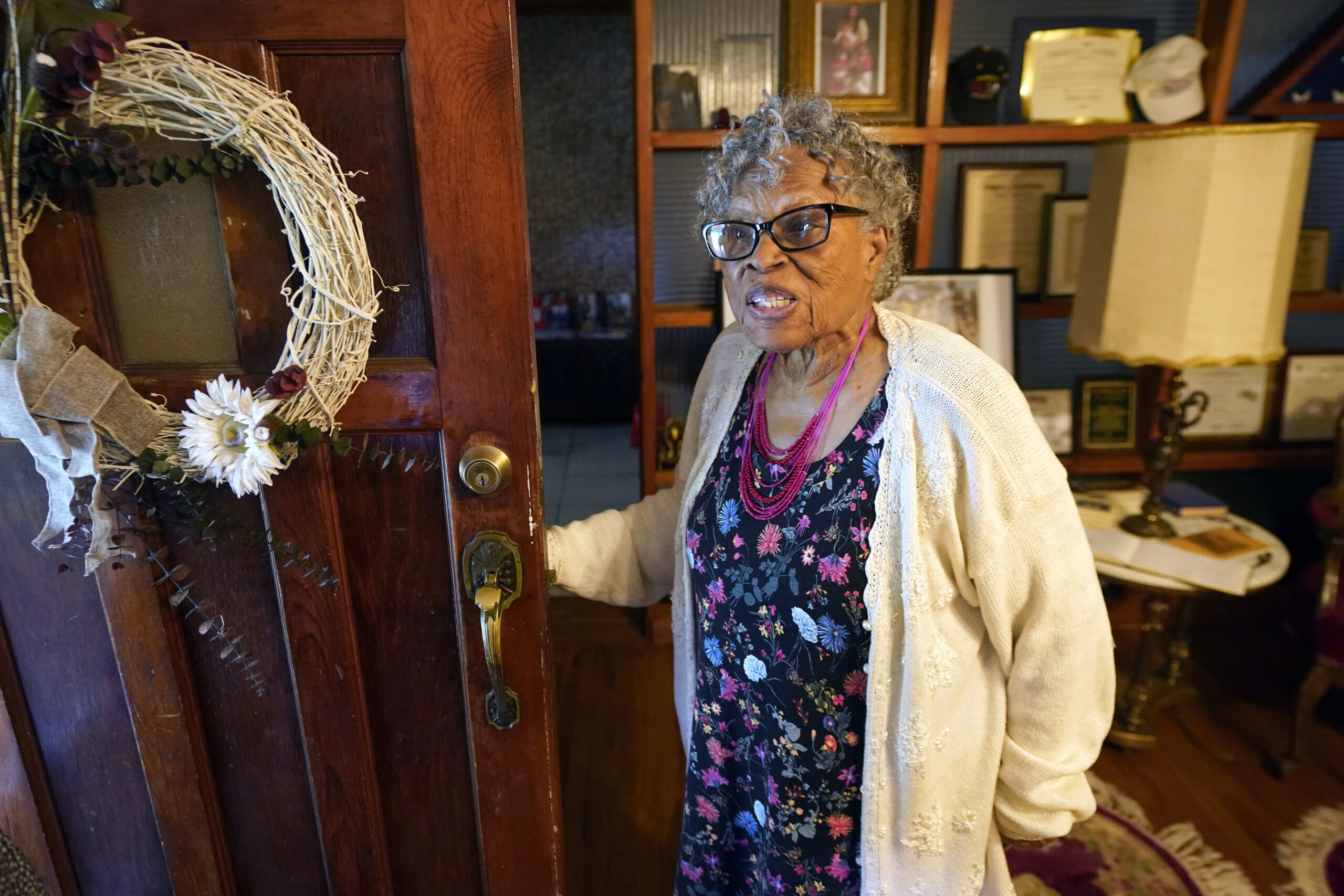FORT WORTH — Growing up in Texas, Opal Lee celebrated Juneteenth by picnicking and dancing with her family at Sycamore Park in Fort Worth.
When she was 12 years old, a mob of white supremacists set fire to her family’s home and destroyed it. Lee and her family were forced to flee, and no arrests were made.
That event would catapult her into a career as an activist. She spent years fighting to have Juneteenth recognized as a federal holiday. She accomplished that goal in 2021, earning the title “Grandmother of Juneteenth.”

For nearly two decades, Lee ran a tiny Juneteenth museum in Fort Worth’s Historic South Side. Now, the planned National Juneteenth Museum will share the country’s history of both slavery and emancipation.
The museum, which has raised roughly half of its $70 million goal, is set to open by Juneteenth 2025.
“I’m looking forward to it,” the 96-year-old Lee said.
On Thursday, Lee shared a stage with Bryan Stevenson, executive director of the Equal Justice Initiative, a human rights organization based in Alabama. Stevenson is best known as author of the memoir Just Mercy, which was turned into a critically acclaimed film starring Michael B. Jordan and Jamie Foxx.

Lee and Stevenson spoke as part of the museum’s inaugural speaker series at I.M. Terrell Academy for STEM and VPA. I.M Terrell was Lee’s alma mater and the city’s first Black school, which opened in 1882.
Before a jubilant crowd, Lee and Stevenson shared their thoughts on the enduring legacy of slavery, the need for education about this country’s history and how that can help Americans heal and move forward.
Stevenson, whose nonprofit opened the Legacy Museum in Montgomery, Ala., which tells U.S history “from enslavement to mass incarceration,” said the National Juneteenth Museum will be a “truth-telling space.”
“There’s real power when you understand this history,” Stevenson said. “It’s a tragic history, but there’s also resilience and strength and love and community. We have to tap into that.”
Recalling his first trip to Africa, Stevenson said a Nigerian lawyer was showing him around Lagos, Nigeria’s largest city. Stevenson was growing tired, but the lawyer insisted on taking him to one last place.
They arrived at the ocean. There, the lawyer apologized and began to cry. “This is where we lost you,” he told Stevenson, referring to where Africans were forced onto slave ships.
“It was the first time anyone had ever apologized to me for the legacy of slavery,” he said, adding that the United States remains buried by a “long history of racial injustice.”
To unbury itself, Stevenson said, people need to share the truth about the country’s history, remain hopeful, help others in their community, educate themselves and be willing to do things that are uncomfortable.
“You’ve got to tell the truth before you get to redemption,” he said. “The reason we want to talk about this is not to punish America. We want to liberate America.”
Lee urged young people to make themselves a “committee of one” and to work to change the minds of those who disagree. Honesty and education about this country’s past are critical, she said.
“We can’t hide the truth. The good, the bad, the ugly,” she said. “They need to know.”
This story, originally published in The Dallas Morning News, is reprinted as part of a collaborative partnership between The Dallas Morning News and Texas Metro News, one of NABJ Black News & Views’ news partners.








